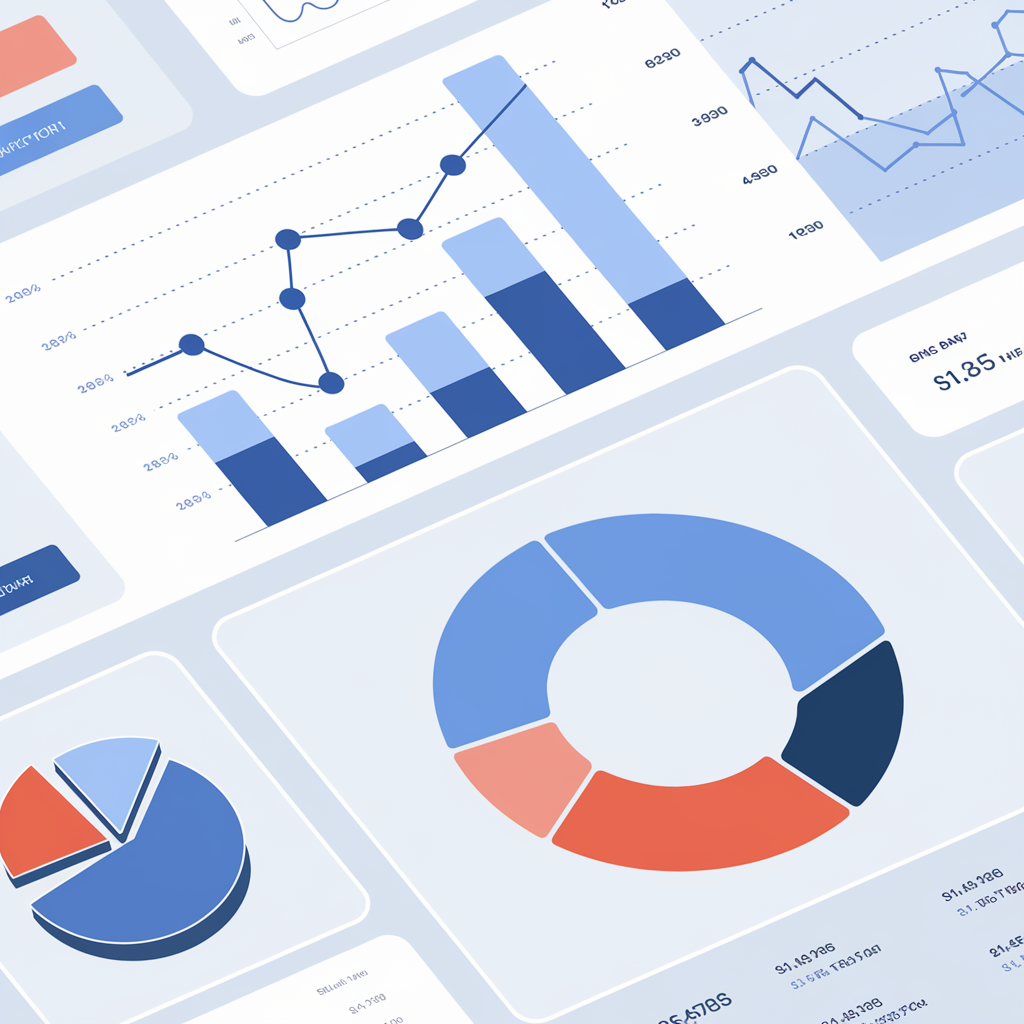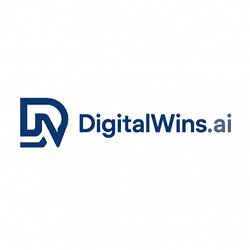Search Engine Optimization (SEO) for SaaS platforms involves optimizing a software-as-a-service website to improve its visibility in search engine results. Unlike traditional businesses, SaaS platforms face unique challenges such as subscription-based models, recurring customer acquisition, and handling complex service offerings.
SaaS SEO requires a tailored approach that blends technical SEO, content strategy, and conversion optimization to meet the needs of both search engines and users. The goal is to attract relevant traffic, improve rankings, and convert visitors into long-term subscribers.

Why Automation is Key for SaaS Platforms
SaaS businesses must continually update and refine their SEO strategies in a fast-paced digital world. Managing SEO manually can be time-consuming and error-prone, especially as your business scales. SEO automation offers a solution by streamlining repetitive tasks, ensuring consistency, and freeing time for strategic initiatives.
For SaaS platforms, automation is crucial because:
- SEO tasks are complex and ongoing, requiring constant attention.
- Manual processes can’t keep up with the scale and speed of updates.
- Automating certain aspects allows teams to focus on creative and high-level strategies.
The Role of AI in Optimizing SaaS SEO
AI plays a transformative role in automating and enhancing SaaS SEO efforts. AI tools can quickly analyze vast amounts of data, recognize patterns, and implement changes based on performance metrics. By integrating AI, SaaS businesses can optimize their SEO efforts and continually evolve without manual intervention.
AI-driven SEO automation offers:
- Smarter keyword research.
- Automatic content generation and optimization.
- Dynamic adjustments based on search algorithm changes.
- Insights into user behavior and search trends.
How SaaS SEO Automation Works
Overview of SEO Automation Tools for SaaS Platforms
SaaS SEO automation tools are designed to perform specific SEO tasks automatically, often using AI to improve accuracy and efficiency. These tools integrate seamlessly with your website and analytics platforms, allowing them to monitor, analyze, and adjust your SEO strategy without manual input.
Some common tools for SaaS SEO automation include:
- Rank tracking software: Automatically monitors keyword rankings.
- Content optimization tools: Suggests changes for content optimization based on real-time data.
- Backlink analysis tools: Automates the process of discovering and analyzing backlinks.
- AI-powered chatbots: Helps engage users and gather valuable insights for SEO improvements.
The AI-Powered Approach to SEO Automation
AI-driven SEO automation relies on machine learning and natural language processing (NLP) to improve and personalize SEO tactics. These systems use data from search engines, user behavior, and your website’s performance to make decisions that typically require manual adjustments.
For example:
- AI can identify high-performing keywords, suggest topic clusters for content creation, and even generate new content that aligns with SEO best practices.
- On-page SEO factors like meta descriptions, heading tags, and internal linking can be adjusted automatically, ensuring your pages are always optimized.
- AI tools can continuously analyze backlink quality and monitor site health, making necessary changes to boost rankings.
Key Features and Benefits of SEO Automation in SaaS
Automation tools enhance the efficiency of SEO processes, enabling SaaS platforms to stay competitive in a crowded market. Key features include:
- Time efficiency: Automation handles routine SEO tasks, allowing teams to focus on strategy.
- Scalability: With automation, your SEO efforts can grow as your business does.
- Consistency: Automated tools help maintain consistent optimization across all pages, ensuring better long-term results.
- Real-time adjustments: AI-driven tools can adjust strategies on the fly based on real-time data, ensuring SEO practices are always up to date.
In summary, SaaS SEO automation saves time, boosts productivity, and ensures that your SEO strategy always aligns with the latest trends and best practices.

Benefits of SaaS SEO Automation
Time Savings and Increased Efficiency
Time is one of the most valuable resources for SaaS businesses. SEO tasks like keyword research, content optimization, and backlink management can take up a lot of time. When these tasks are automated, teams can save hours every week, focusing on high-level strategies that drive growth.
Automation tools can:
- Schedule routine tasks like keyword tracking and report generation.
- Automatically optimize content based on SEO data.
- Monitor backlinks and alert you to any changes in real-time.
- Provide ongoing insights into website performance without requiring manual checks.
With these tasks taken care of, your team can stay focused on scaling the business.
Scalability for Growing SaaS Businesses
As your SaaS platform grows, managing SEO can become increasingly complex. New pages, features, and products are constantly added, and each of these requires SEO attention. Manual SEO tasks simply can’t scale with your business.
Automation allows for:
- Seamless integration: Tools can scale to handle more pages, keywords, and content as your site grows.
- Automatic updates: When new content or features are added, automation ensures they are optimized without delay.
- Bulk processing: Whether it’s updating meta tags or conducting audits, automated tools can manage large volumes of tasks simultaneously.
This scalability ensures that your SEO efforts remain efficient, even as your platform expands.
Consistent Ranking Improvements
SEO requires constant monitoring and adjustments to maintain high rankings on search engines. Automation ensures that no critical changes or updates are missed, leading to more consistent and reliable rankings.
Automation helps in:
- Continuous monitoring: Tools automatically track your SEO performance and flag areas that need improvement.
- Adaptation to algorithm changes: SEO automation tools can quickly adapt to any changes in search engine algorithms, ensuring that your site stays compliant and competitive.
- Smart adjustments: AI-driven tools analyze trends and automatically implement changes to maintain or improve rankings.
This consistency is key for maintaining a strong online presence and attracting a steady stream of organic traffic.
Enhanced User Experience and Engagement
Good SEO isn’t just about keywords and rankings; it’s also about delivering a great user experience. Automation tools can help you identify areas where your site may be falling short, making it easier to optimize for both users and search engines.
Automated tools improve user experience by:
- Personalizing content: AI can suggest or even create content tailored to your audience’s preferences, increasing engagement.
- Improving load times: SEO tools can analyze site performance and automatically suggest improvements to speed up page load times, which is critical for user retention.
- Optimizing mobile experiences: As more users access SaaS platforms from mobile devices, automation tools help ensure that your site is mobile-friendly and performs well across all devices.
When your site is optimized for both search engines and users, engagement improves, leading to higher conversion rates and customer satisfaction.
Essential AI Tools for SaaS SEO Automation
AI-Powered Keyword Research Tools
Keyword research is the backbone of any successful SEO strategy. AI-driven tools take the guesswork out of the process by analyzing large datasets and providing insights into which keywords are most likely to drive traffic to your SaaS platform.
Key benefits of AI-powered keyword research:
- Long-tail keyword identification: AI tools can uncover long-tail keywords that may be overlooked in manual research, helping to target niche markets.
- Search intent analysis: AI tools analyze user intent behind search queries, ensuring that keywords align with the type of content users are looking for.
- Real-time data: AI tools provide up-to-date keyword performance data, allowing you to adjust your strategy quickly.
With AI, your keyword strategy becomes data-driven and adaptable to ongoing trends.
On-Page Optimization Automation
On-page SEO refers to optimizing the content and structure of your web pages to improve search rankings. AI tools can automatically make recommendations or implement changes to improve on-page SEO, such as optimizing meta tags, headers, and internal linking.
AI-powered on-page tools can:
- Suggest content adjustments: Based on keyword analysis, AI can suggest changes to headers, content, and even the overall page structure to improve SEO.
- Analyze user behavior: Tools can track how users interact with your page and suggest improvements based on engagement data.
- Automatically update internal links: AI tools ensure that your pages are always linked together logically, improving both SEO and the user experience.
With automation, on-page optimization becomes easier to maintain, ensuring your content remains SEO-friendly.
Content Generation and Optimization Using AI
Content creation is a major part of SEO, but it can also be one of the most time-consuming tasks. AI can help automate parts of this process by generating content based on targeted keywords and optimizing it for SEO.
AI-driven content tools can:
- Generate blog posts and articles: AI can create drafts for blog posts, landing pages, or product descriptions based on the keywords you provide.
- Optimize existing content: AI tools analyze your existing content and suggest improvements to make it more SEO-friendly.
- Ensure content quality: AI tools check for grammar, readability, and SEO compliance, ensuring your content is both high-quality and optimized.
This level of automation ensures your content is both scalable and aligned with SEO best practices.
Backlink Management and Automation
Backlinks remain a critical ranking factor for SEO. Manually tracking and acquiring backlinks can be a labor-intensive process, but AI tools can automate much of this work, allowing you to maintain a healthy backlink profile.
AI-driven backlink tools can:
- Identify potential backlink opportunities: AI can automatically find websites or blogs that would be good sources for backlinks, saving time on outreach.
- Monitor backlinks: Automated tools track your existing backlinks, alerting you to any broken links or lost backlinks.
- Evaluate backlink quality: AI tools analyze the quality of backlinks and prioritize high-authority links that will have the greatest impact on SEO.
Automating backlink management ensures that your backlink profile remains healthy and effective without manual intervention.
Challenges in Implementing SaaS SEO Automation
Integration with Existing Tools and Platforms
One of the main challenges when adopting SEO automation for SaaS platforms is integrating these tools with your existing tech stack. Many SaaS businesses use various platforms and software, such as CRM systems, marketing automation tools, and analytics dashboards. Ensuring SEO automation tools work seamlessly with these systems is crucial for smooth operations.
Challenges include:
- Data silos: If your tools don’t integrate well, you might end up with fragmented data, making it harder to get a clear picture of your SEO performance.
- Compatibility issues: Some automation tools may not work well with your website structure or content management system (CMS).
- Learning curve: Adopting new technology may require time to train your team, especially if the automation tools are sophisticated or offer many features.
To overcome these challenges, choosing SEO tools designed for easy integration and providing solid support during the transition is essential.
Handling Dynamic and Complex Content
SaaS platforms often have a large amount of dynamic content, such as user-generated reviews, frequently updated features, and product variations. Optimizing this type of content can be difficult, as it constantly changes.
Challenges include:
- Content volume: SaaS platforms may produce hundreds or even thousands of pages, making it tough to manually optimize every single one.
- Frequent updates: Constantly changing features or product offerings may require ongoing adjustments to SEO strategies.
- Personalization: As SaaS platforms evolve, content needs to be personalized to different user segments, which can complicate the optimization process.
AI-driven tools can help by automating the process of identifying high-priority content that needs optimization and applying changes as necessary. However, it’s important to balance automation and human oversight to ensure that the content remains relevant and engaging.
Avoiding Over-Reliance on Automation
While SEO automation can greatly improve efficiency, there is a risk of becoming too dependent on these tools. Over-relying on automation can lead to a lack of creativity and missed opportunities for strategic thinking.
Challenges include:
- Lack of human touch: SEO automation tools are based on data and algorithms, but they may not fully understand your brand’s or target audience’s nuances.
- Over-optimization: Relying too heavily on AI can result in over-optimization, where content becomes unnatural or overly focused on ranking rather than providing value.
- Missed strategic insights: While automation helps with execution, it can sometimes overlook the bigger picture, such as long-term trends and creative opportunities.
To prevent over-reliance, SaaS businesses should blend automation with strategic human input. While automation handles repetitive tasks, your team can focus on developing innovative, high-quality content and staying ahead of trends.

Best Practices for Leveraging SaaS SEO Automation
Combining AI Tools with Human Expertise
While AI tools are incredibly powerful, they work best with human expertise. A balanced approach allows you to use automation’s speed and efficiency while ensuring your content and SEO strategies align with your brand’s voice and goals.
Best practices include:
- Human oversight: Regularly monitor AI-generated content or recommendations to ensure they align with your brand and user needs.
- Creativity and strategy: Use AI tools for execution, but rely on your team for creative insights and strategic direction.
- Continuous learning: Stay updated on SEO best practices and algorithm changes, and adjust your automation tools as needed.
Combining AI and human expertise creates a powerful SEO strategy that’s both efficient and innovative.
Regular Monitoring and Adjustment of Automated Processes
Automation is not a set-it-and-forget-it solution. While AI tools can handle routine tasks, it’s important to regularly monitor and fine-tune the automated processes to ensure they produce the desired results.
Best practices include:
- Set clear KPIs: Establish key performance indicators (KPIs) for your SEO efforts so you can measure the effectiveness of automation tools.
- Review analytics regularly: AI tools can provide a lot of data, but it’s important to interpret the results and make adjustments as necessary.
- A/B testing: Use A/B testing to evaluate different SEO tactics and refine your automation processes accordingly.
Regularly reviewing and adjusting your automated SEO strategies ensures they remain effective and aligned with your goals.
Focusing on High-Quality Content Alongside Automation
SEO automation is valuable but should not replace the need for high-quality content. No matter how advanced your automation tools are, the quality of your content will ultimately engage your audience and boost your rankings.
Best practices include:
- Create valuable content: Focus on producing content that addresses user pain points, provides real solutions, and answers questions.
- Diversify content types: Use a mix of blog posts, case studies, videos, and whitepapers to engage different audience segments.
- Maintain a content calendar: Even though automation can handle much of the work, having a content strategy and calendar will ensure your content stays relevant and timely.
By combining automation with a commitment to high-quality, user-focused content, you can drive organic traffic and build a loyal customer base.
Breaking It All Down
The Future of SaaS SEO with AI-Driven Automation
The future of SEO for SaaS platforms is undoubtedly tied to the ongoing development of AI and automation tools. As AI technology continues to evolve, so will its capabilities to optimize SEO efforts even further. Expect tools to become smarter, more intuitive, and more integrated into your digital strategy.
SaaS businesses that embrace AI-driven automation will be better positioned to stay ahead of the competition, boost their SEO performance, and create exceptional user experiences.
Final Thoughts on Adopting Automation for SaaS SEO Success
SEO automation is not a one-size-fits-all solution, but it is a powerful tool for SaaS businesses looking to improve their rankings and drive growth. By understanding the benefits, overcoming the challenges, and following best practices, SaaS platforms can harness the full potential of AI-driven SEO to achieve long-term success.
Frequently Asked Questions
What are the best AI tools for SaaS SEO automation?
Some of the best AI tools for SaaS SEO automation include keyword research tools like Ahrefs and SEMrush, on-page optimization platforms like Clearscope and Surfer SEO, and content generation tools like Jasper or Writesonic. These tools automate various SEO tasks, from keyword discovery to content creation and optimization.
Can SEO automation replace human SEO specialists?
While SEO automation tools can handle many repetitive tasks and data analysis, human SEO specialists are crucial for strategy, creativity, and ensuring the content aligns with the brand’s voice. Automation complements human expertise but doesn’t fully replace the need for skilled SEO professionals.
Is it expensive to implement SaaS SEO automation?
The cost of implementing SaaS SEO automation depends on the tools you choose and the scale of your business. Many AI-driven SEO tools offer tiered pricing plans based on features and usage. The investment is often reasonable for small to medium SaaS businesses, considering the time and resources saved by automating SEO tasks.
How do I measure the effectiveness of my automated SEO strategy?
To measure the effectiveness of your automated SEO strategy, track key performance indicators (KPIs) like organic traffic, keyword rankings, conversion rates, and bounce rates. Use analytics tools such as Google Analytics or SEMrush to monitor the results and adjust your strategy as needed.
Can AI-driven SEO tools help with local SEO for SaaS businesses?
Yes, AI-driven SEO tools can help with local SEO by identifying location-based keywords, optimizing Google My Business listings, and helping to build local backlinks. While SaaS businesses are often global, local SEO is still essential if you target specific regions or cities.
How often should I update my SEO automation processes?
SEO strategies and algorithms evolve constantly. It’s important to review and adjust your automation processes regularly, ideally every 3 to 6 months, to ensure your tools are aligned with the latest SEO trends and search engine algorithm updates.
What role does content quality play in automated SEO efforts?
Content quality remains a critical component of SEO success, even with automation. While AI tools can optimize content for search engines, the content must be valuable, informative, and engaging to users. Automation can streamline processes, but human input is necessary to maintain high-quality content.
How does AI handle algorithm updates in SEO?
AI-powered SEO tools are designed to adapt to algorithm updates by analyzing trends and adjusting strategies accordingly. They use machine learning to stay current with changes in search engine algorithms and apply the necessary adjustments to your site’s optimization efforts, ensuring ongoing compliance with best practices.
Can SEO automation help with international SEO for SaaS platforms?
AI-driven SEO tools can assist with international SEO by managing multilingual content, identifying region-specific keywords, and optimizing for local search engines in different countries. These tools can help SaaS businesses navigate the complexities of international SEO, making it easier to scale globally.
Can we automate the creation of high-quality backlinks?
While AI tools can identify potential backlink opportunities and help you track existing links, acquiring high-quality backlinks still requires human outreach and relationship-building. Automation can streamline link monitoring and management, but building strong backlinks often requires personalized efforts.
What are the risks of over-automating SEO?
Over-automating SEO can lead to over-optimization, where content becomes too focused on keywords or technical aspects and loses its natural flow or relevance. It can also result in missed opportunities for strategic thinking and innovation. Balancing automation with human creativity is essential for maintaining a successful SEO strategy.
Do SEO automation tools require technical expertise to use?
Most SEO automation tools are designed to be user-friendly, but some may require a basic understanding of SEO principles to use effectively. Tools focusing on content optimization, keyword research, and backlink management typically offer intuitive interfaces, but more advanced tools require additional learning or guidance.
How can I avoid making mistakes while using SEO automation tools?
To avoid mistakes, ensure that your automation tools are set up correctly and aligned with your SEO goals. Regularly review the data and recommendations provided by the tools, and combine them with human expertise to refine strategies. Testing changes, using A/B testing, and keeping up with SEO trends can also help minimize errors.
Offsite Resources
Moz: Offers a wide range of SEO tools, resources, and articles that can help you stay updated on the latest trends and best practices.
Ahrefs: Provides comprehensive SEO tools, including keyword research, backlink analysis, and competitor research.
SEMrush: A popular platform that helps with SEO audit, content optimization, keyword tracking, and more.
Search Engine Journal: A hub for the latest SEO news, guides, and expert opinions from the SEO community.
Neil Patel: A well-known SEO expert who offers free tools, courses, and detailed articles on how to improve your website’s SEO.
HubSpot: A marketing and sales platform that provides SEO tips, marketing strategies, and free tools to help your SaaS business grow.
Yoast: Known for its WordPress plugin, Yoast also offers valuable content, tips, and SEO tools to improve on-page optimization.

What's Next
A quick reminder to all small business owners: The SEO tips on this page were provided by our co-founder, Matt LaClear. With over 13,277 SEO campaigns under his belt since 2009, Matt brings a wealth of experience and proven strategies to help your business succeed online.
Don’t miss out on his special offer – take advantage of a free custom SEO strategy call. This is a great opportunity to get personalized insights and actionable steps for improving your SEO and growing your business. Reach out today and see how Matt’s expertise can make a difference for you!

